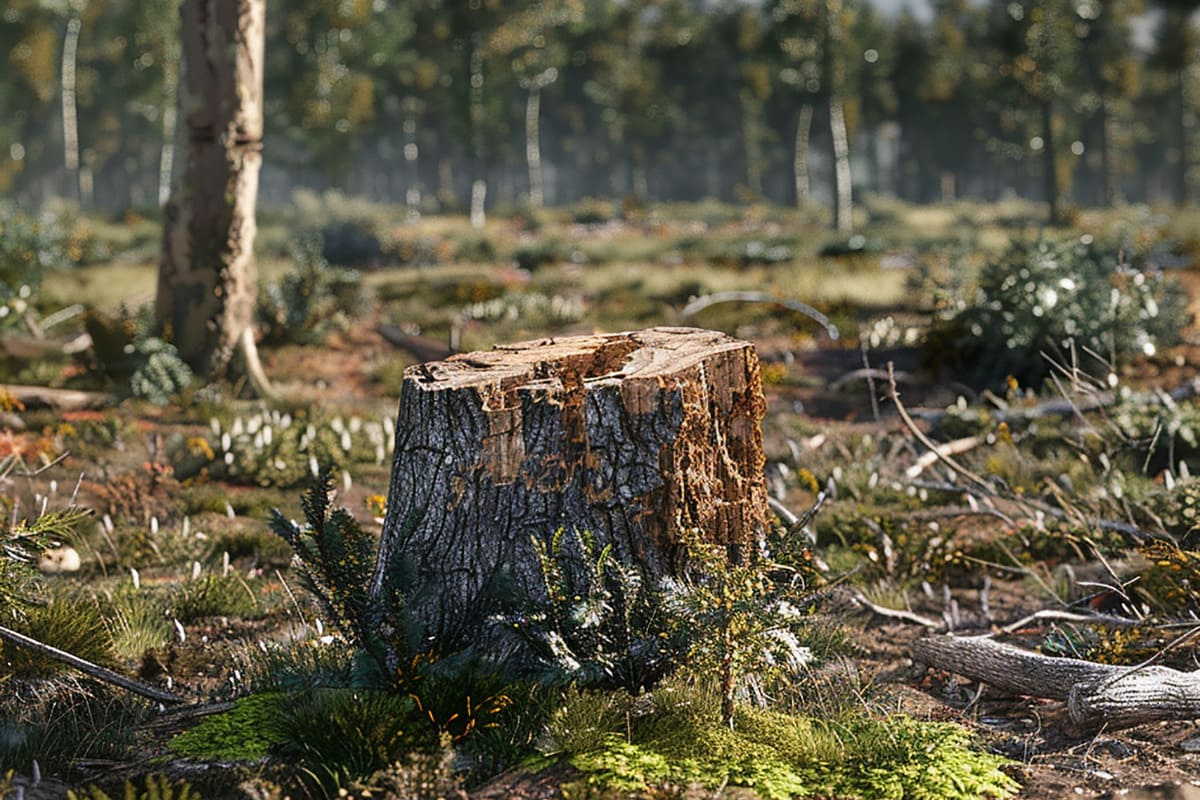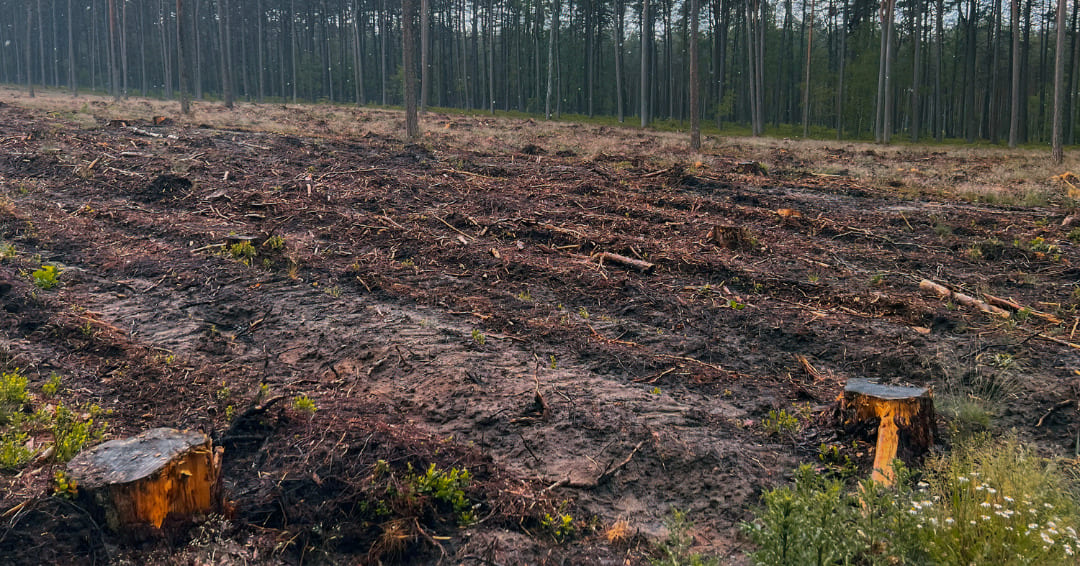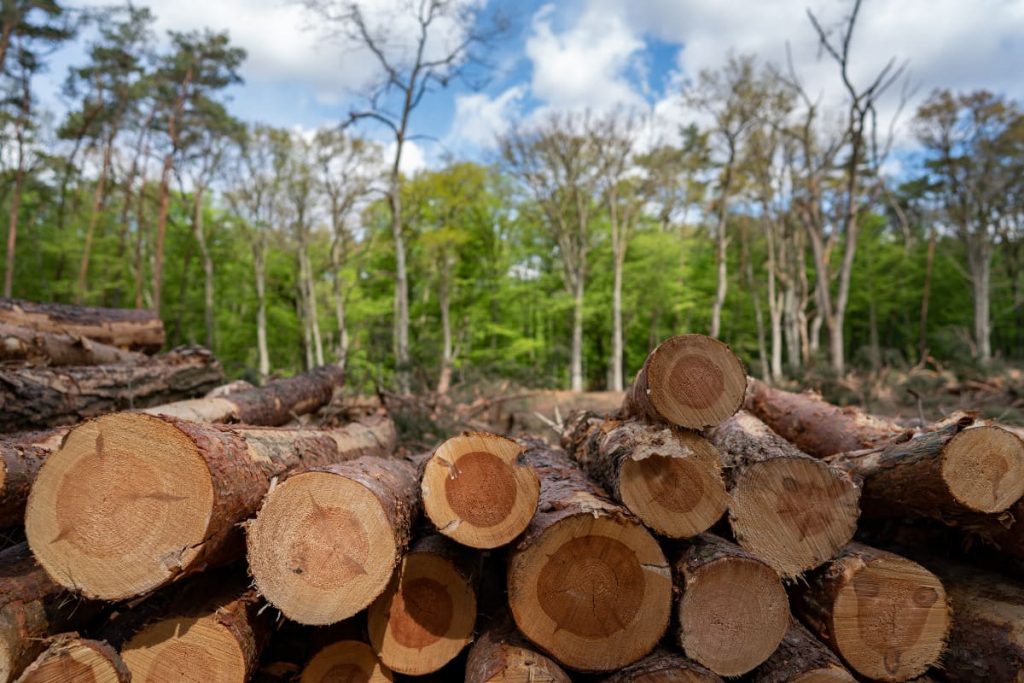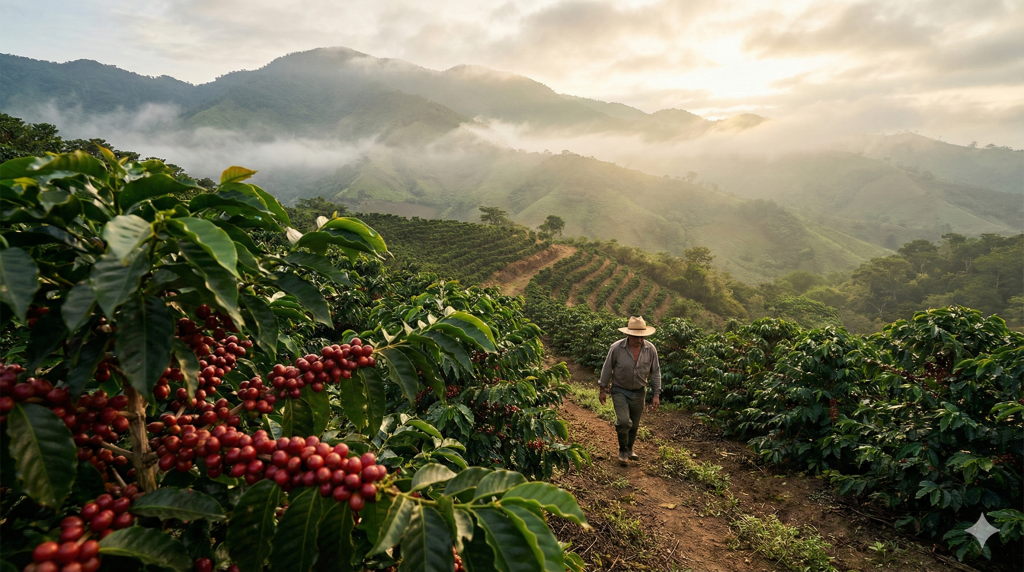The consequences of deforestation are one of the main problems affecting the coffee and cocoa industry. If not properly managed, there is a risk of loss of biodiversity in the cultivation area.
In addition, the economy of the companies involved in the cultivation will be affected because production will be significantly reduced. If you want to know what deforestation is and how to include technology to solve it, keep reading this article!
Impact of deforestation on the future of agricultural fields
Deforestation is the process by which large tracts of forest are cleared to make way for agriculture, livestock and natural resource exploitation. Although human activities are the main cause of deforestation, its consequences influence the future of the coffee industry.
The Food and Agriculture Organisation of the United Nations (FAO) stated that between 2000 and 2018, 90 % of deforestation was linked to agriculture. Deforestation is also a contributing factor to climate change. In this way, the conditions necessary for coffee cultivation can be altered.
In order to grow coffee, the field must be located in a tropical and equatorial climate, where humidity is predominant to enrich production. However, a sunny climate should predominate, as long as it is grown under the shade of trees to boost soil organic matter.
Soil degradation is another determining factor. When vegetation is cut down, the soil is exposed to radiation and is susceptible to erosion. In addition, this influences water scarcity, as without water, irrigation of the fields decreases and timings are altered. Finally, coffee and cocoa businesses are affected by deforestation because their production is reduced, as is their income, affecting their economy and the farmers’ quality of life.
Top 5 consequences of deforestation
A poorly tended and dirty field can lead to fires and the loss of biodiversity of living beings. It is therefore necessary to be aware of the main consequences of this bad practice for agricultural fields. The following is an analysis of the problems caused by deforestation:
- Reduction of biodiversity: the indiscriminate felling of forests destroys the habitats of many species. In particular, those species that are essential for controlling pests in coffee fields.
- Increased CO2 emissions: trees store carbon and, after being felled, this carbon is released into the atmosphere, contributing to the greenhouse effect.
- Alteration of the water cycle: forests regulate the hydrological cycle. When forests disappear, precipitation and water availability are altered, affecting the cultivation of crops.
- Soil erosion: deforestation exposes the soil to erosion, reducing its fertility and capacity to retain water.
- Impact on the local economy: rural communities that depend on coffee and cocoa production see their income and quality of life reduced due to lower agricultural productivity.
Deforestation has wiped out 43 million hectares worldwide since 2011
The EUDR solution promotes compliance with European regulations and promotes sustainable and clean activities for the coffee and cocoa business. The main objective of this regulation is to avoid deforestation to prevent the development of its consequences. At Coolx, we are aware of this need and we are happy to help you to adapt your products to EUDR standards.

Use of technology and sustainable practices in agriculture
High-density farming increases crop yields without the need to increase the size of the field. This type of farming is characterised by exploiting the available soil using a large number of products through machinery and fertilisers. Moreover, to mitigate this problem, three sustainable strategies are employed:
- Use of drones and sensors: both technologies allow monitoring soil and crop health, optimising the use of resources and improving agricultural efficiency. It also helps farmers make informed decisions on irrigation and fertiliser application, reducing waste and increasing productivity.
- Efficient irrigation techniques: recognising the absence or excess of water is crucial, especially in areas where water is a limited resource. Drip irrigation allows water to reach plant roots directly, reducing evaporation and improving nutrient uptake.
- Shade crops: Planting coffee and cocoa under the shade of other trees protects them from excessive sunlight and extreme temperatures, and improves their health and productivity.
Extensive crop enterprises need to keep up to date to improve productivity and reduce environmental impact. Specialised training and workshops are available for those who wish to learn about sustainable farming techniques.
Ultimately, the implementation of these sustainable techniques benefits both the environment and producers, as the productivity and stability of the fields is increased and their quality is improved. Moreover, adopting these practices contributes to resilience in the face of climate change and ensures the evolution of coffee farms for years to come.
Coolx analyses and solves the consequences of deforestation
At Coolx we strive to promote deforestation-free coffee and cocoa and we help you to adapt your products to EUDR standards according to your company’s typology. We are also aware of the seriousness of the consequences of deforestation and we work to solve it as soon as possible.
The consequences of deforestation are profound and varied, but with concrete actions and a commitment to sustainability, it is possible to address them. If you want to know more or have any suggestions, please do not hesitate to contact us!



